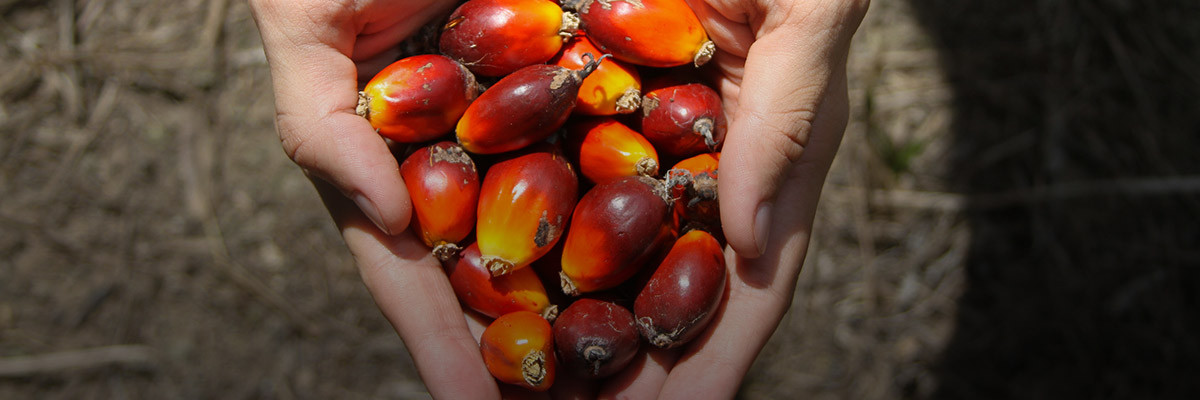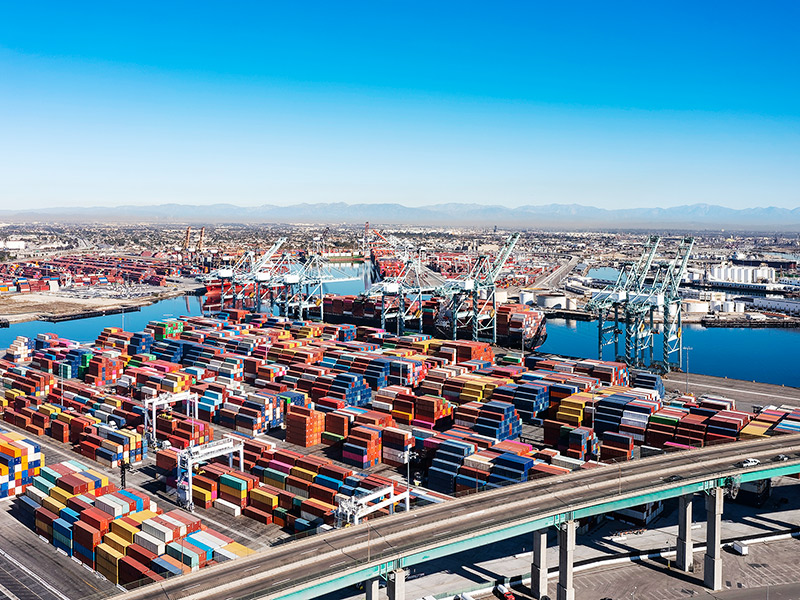
Palm-based derivatives are a key ingredient to many products we use on a daily basis, such as soap and shampoo. Sourcing palm oil or palm kernel oil responsibly, however, is a challenge for the companies behind these products. Despite increasingly common commitments to ‘No Deforestation, No Peat, No Exploitation’ (NDPE) in both the downstream and upstream industry, the situation in the field remains critical—palm oil production continues to be a source of deforestation and human rights abuses, as highlighted by Greenpeace’s recent Countdown to Extinction report:
- In 2016-2017, Indonesia lost three million hectares of natural forests.
- Changes in land use in Indonesia and Malaysia due to the palm industry have led to the emission of approximately 500 million tons of CO2e each year from 2015-2018.
- The International Union for Conservation of Nature (IUCN) found that palm oil production has affected at least 193 threatened species.
- Evidence of human rights abuses persist throughout the sector in Indonesia and Malaysia.
To respond to these challenges, companies must undertake profound changes in their operating methods to optimize their social and environmental footprint. These necessary changes must be increasingly ambitious to adequately address the critical environmental and social issues related to palm derivatives production and distribution.
To accelerate compliance of supply chains with deforestation-free and responsible sourcing principles, BSR and Transitions are excited to launch a new collaborative initiative for corporate buyers of palm-based derivatives, alongside 11 member companies, including L'Oréal, Beiersdorf, The Body Shop, Croda, The Estée Lauder Companies, Henkel, and Zschimmer & Schwarz Italiana: Action for Sustainable Derivatives (ASD).
Ensuring a Sustainable Supply Chain
This collaborative approach was born out of a recognition that, while companies are increasingly seeking to accelerate compliance with deforestation-free and responsible sourcing principles, individual supply chain dynamics and overlapping comparable approaches have led to significant duplication of efforts in this area.
By harmonizing requirements, standardizing tools and methodologies, and mutualizing efforts, ASD intends to increase the transparency of the global derivatives supply chain, collectively monitor risks and activities along the supply chain, and implement collective action projects to address social and environmental issues on the ground. By moving beyond competition and joining forces to address non-compliance issues in the supply chain, ASD participants have the opportunity to translate individual policies into concrete results.
A Vision for the Future of Palm Derivatives
ASD will address key challenges such as deforestation, climate change, resource consumption, respect for local communities, and working conditions. Through collaborative approaches with all direct and indirect stakeholders of the value chain, the initiative seeks to tackle issues at every step of the supply chain in order to reduce impacts and sustainably support the evolution of practices linked to the production of palm oil. This collaboration is designed to achieve the following results:
- Create a global, transparent mapping of the palm derivatives supply chain.
- Maximize the potential for success in reaching the 2020 NDPE target by sharing solutions.
- Harmonize approaches on transparency, risk monitoring, and evaluation.
- Explore opportunities for multilateral collaboration and collective action, including on pilots of tools, methodologies, and sustainable field projects.
- Unite as a sector to increase external recognition of the singular complexity of the palm derivatives supply chain and to leverage influence over major upstream supply chain players.
BSR and Transitions aspire for this collaborative work to drive broad-reaching impacts that create social and environmental value. We invite companies from cosmetics, detergent, and oleochemicals industries to join ASD. For more information, please contact us.
BSR’s latest sustainability insights and events straight to your inbox.
Topics
Collaborative Initiatives
Let’s talk about how BSR can help you to transform your business and achieve your sustainability goals.








